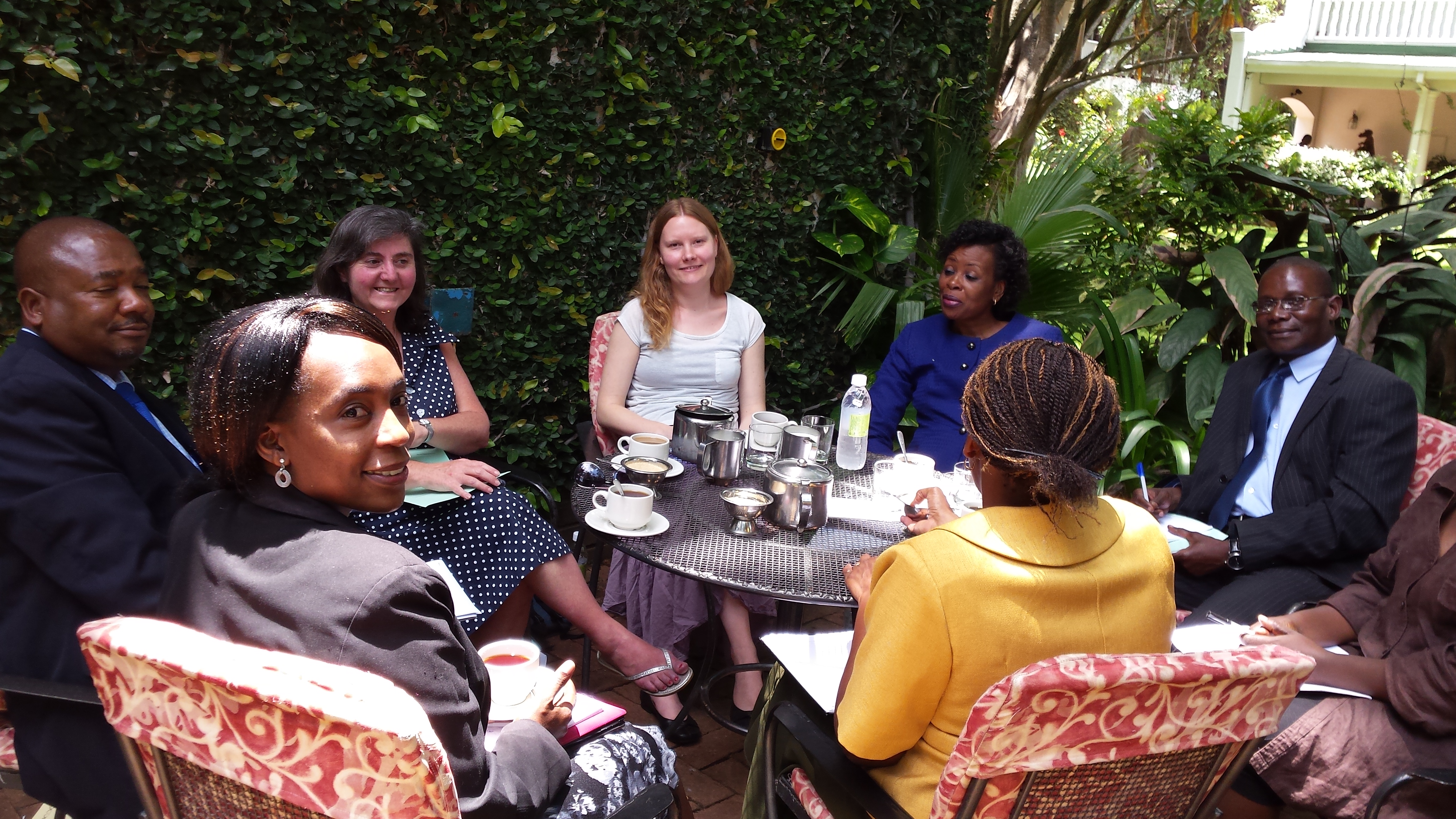
Reflecting on work to improve information access
This month, Anne Powell, INASP’s longest serving member of staff, is leaving the organization. Having worked at INASP for nearly 18 years, Anne has been a key figure in INASP’s evolution. Originally from Zimbabwe, Anne worked as a librarian and library educator for 21 years before joining INASP to help scale up the organization’s work to improve the availability of research literature to researchers in the Global South. Anne’s work has focused on developing strategic partnerships, and enabling national library consortia, universities and research institutes to establish their value in national research and knowledge systems. More recently, Anne has been leading INASP’s contribution on supporting the development of critical thinking capacity in the Assuring Quality Higher Education in Sierra Leone (AQHEd-SL) project. Her calm demeanour and empathy, coupled with strength and unerring professionalism, have led her to become a highly trusted colleague, both within INASP and with our partners. She will be hugely missed. In this post, Anne reviews how INASP’s information access work has evolved, and reflects on some of her highlights.
During the 18 years of my time at INASP, the information access landscape has seen dramatic changes, with ever-increasing numbers of online journals and books being published and of course the rise of Open Access. When I joined INASP, our library partners were able to select subscriptions from just a handful of publishers and thus looked to us to “recruit” more publishers to provide content. They needed assistance in managing access to digital content but also in managing the infrastructure necessary to supply this, providing a real niche for INASP.
Over the course of three different phases of project funding, INASP has worked with national library consortia to ensure that researchers in developing countries have access to the literature that they need. Right from the beginning of the Programme for the Enhancement of Research Information (PERI) (initially a five-year project funded by DFID, Norad and Sida in 2001), we were working towards the point where INASP was no longer central to the delivery of information into the research system. This has not been easy and has needed the commitment of publishers as well as librarians and strong leadership by library consortia. I can identify some notable factors contributing to the end goal where consortia manage access – capacity development approaches, building understanding, use of digital technology and regional support networks.
Individual and institutional support
All along, there have been some key individuals who have supported the project and fully grasped the vision of what INASP has been trying to do. Many people within the consortia have shown strong leadership in influencing their institutional budget holders and in attracting new members to the consortium. Publishers and like-minded organizations like Research4Life have offered strong support.
The PERI programme initially sought to build the skill of individuals. We held a number of skills training workshops for librarians at an institutional level to ensure that they understood and could manage access to and use of electronic resources. These were face-to-face events and brought a sound core of library professionals into our network.
The nature and need for capacity development has changed over the course of the 18 years since PERI began, and in more recent programmes we supported capacity building at an institutional level, leading to the development of national library consortia.
Embracing technology developments
We have also been able to change our delivery methods and make much more use of technology in the form of digital courses and webinars. As we have been working with online literature, a progression to digital courses has been a natural step and librarians in more than 100 universities have benefited from online courses to manage digital libraries and provide training on the use of resources to student and academics. We have used our digital courses on Monitoring and Evaluation of Electronic Resource Usage (MEERU) and Copyright and Licensing to try new ways of provided blended learning and regional support.
Underpinning the skills training, the PERI programme also saw us begin to negotiate with international publishers for appropriately discounted access to research literature and to encourage librarians to think about the development of national library consortiums. In some countries, for example Ghana, librarians took this idea and ran with it immediately. In other countries, more encouragement and support to enable the development of national library consortiums was needed. This support was offered with the second phase of PERI (known as PERii) and our follow on project, Strengthening Research and Knowledge Systems (SRKS), which was funded by DFID and Sida from 2013-2018.
Strengthening consortia capacity
Strengthening the capacity of partner countries to secure and manage access in the future was a key focus of the SRKS programme. Negotiating with publishers about licences and pricing for access to online research content was daunting to many consortia. During SRKS, we supported consortia to develop the skills and capacity to transition to independent negotiation by providing one-to-one mentoring, digital courses, regional workshops and through direct advice.
I’m immensely proud that, as of the end of March 2018, national library purchasing consortia in 13 countries were in a position to deal directly with publishers and to manage their access to subscription journals independently of INASP. Over the last year we have worked with consortia in a further eight countries to prepare them for the same independence.
Working with publishers
The focus of the past 18 years of my career has been to support researchers in the Global South to access global research information, but I have worked with many different actors to achieve this. While much of my time has been spent working closely with librarians, another key stakeholder group has been publishers.
The commitment of publishers to support our projects has been a contributing factor to their success. This was individually, corporately and through our Publishers for Development (PfD) initiative, which sought to bring together stakeholders within the global research and publishing community to ensure that the needs of Southern partners are accounted for in Northern practices.
We have had some lovely contacts in the major publishing houses, who have championed access to researchers globally. But there have also been those who, for personal or corporate reasons, have required tough conversations. We’ve had nine excellent PfD conferences where a whole range of opinions have been expressed. I’ve especially enjoyed hearing from developing-country researchers in these conferences – Margaret Sraku-Lartey’s presentation on miracle berries is particularly memorable. It’s also been most rewarding when speaking with publishers and seeing them revise their pricing structures based on INASP advice.
From national to regional levels
Another level of progression that I have been proud to be a part of has been a transition from working at a national level to a regional level. This has led to a sharing of learning and experience and has built up a support system to replace INASP. In Central America the consortia in Honduras, Nicaragua and El Salvador have been working very closely together right from the beginning of their involvement in the programme. This has allowed them to jointly negotiate with publishers and to build a regional pool of skilled trainers.
Within INASP, linkage to other projects and programme areas has been extremely important. Now that researchers have access to literature they are able to use their own research to investigate needs priorities and policies of national interest.
So, during the course of my time with INASP’s information access project, I’ve learned the value of being able to build on and scale up successes – such as the digital learning offers. I’ve also learned that timing is crucial as there were, especially in the early days, countries that simply were not ready for consortia. Understanding a situation comes from hearing stories about the impact of information on research, and one of the many things I’ve enjoyed about INASP is our privileged position of getting to hear these stories.
Inspiring people
And then the people… I’ve met so many wonderful people during my time at INASP. I’ve been inspired, amazed, challenged, entertained and most of all, filled with admiration.
INASP’s work to support the capacity of national library consortia to provide sustainable access to the information that their academics and students need has been a success in that, in true development style, we have worked ourselves out of a job!
Of course, there is still the elephant in the room – funding. Consortia have the capacity to manage their subscriptions and negotiate licences, but have very small library budgets on which to do this. But, I have every conviction that the consortia will continue to innovate and grow to meet any challenges they face.
Anne, from all of us at INASP, thank you for your 18 years of dedication and commitment – and we wish you huge success for the future! Please keep in touch and visit us often. We hope to continue learning from you and benefitting from your experience informally for many years to come.
Anne can be contacted via LinkedIn or Twitter.
Cover photo: Anne (second from left, back row), with INASP colleague Mai Skovgaard and members of Zimbabwe’s library consortium.

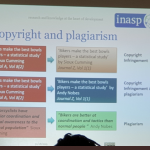 Previous Post
Previous Post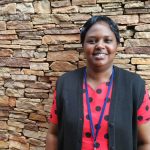 Next Post
Next Post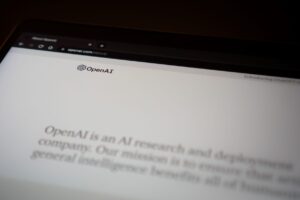
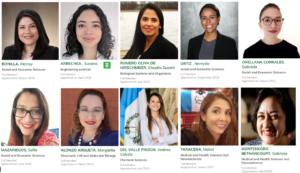

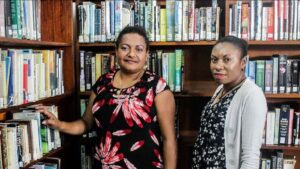
Ann, it has been wonderful enjoying the benefits of your work as a Librarian in Kenya. We have seen INASP hold our hands and help our libraries collection grow and service provision enhanced through technology. A great partnership it has been and will continue to be between INASP and KLISC.
My very best wishes and once an information provider, always ONE. Keep on with the good work. Blessings to you.
Irene Kibandi
Hardworking and quite resourceful she will be missed by her students and workplaces in various countries.